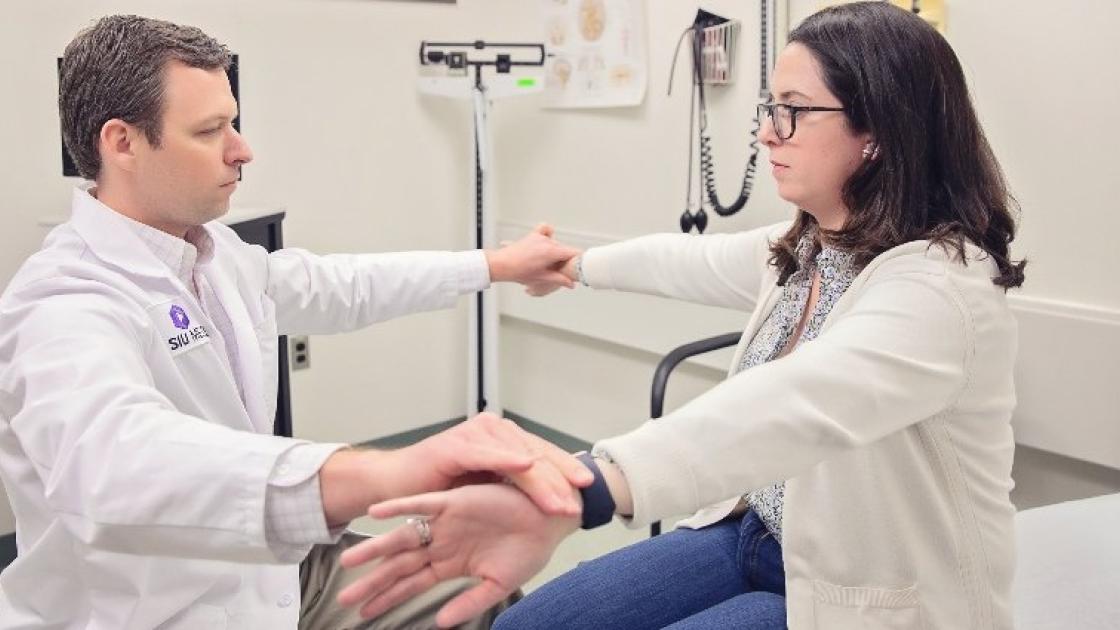
A physiatrist: What to expect
Physiatry is a clinical specialty that focuses on optimizing the function and quality of life in people with a wide range of physical impairments, disabilities and conditions. It’s also known as physical medicine and rehabilitation (PM&R).
How could this branch of medicine help you or your loved one manage a health condition?
Physiatrists, sometimes called PM&R physicians, diagnose and treat medical conditions caused by injury, illness, or disease affecting the nervous system (brain, spinal cord, nerves) and musculoskeletal system (bones, joints, ligaments, muscles, and tendons). Conditions commonly evaluated by physiatrists include:
- Chronic back pain, neck pain, and joint pain
- Osteoarthritis
- Post-operative or post-traumatic pain
- Fibromyalgia
- Burns
- Complex regional pain syndrome
- Cerebral palsy and other types of birth defects
- Strokes
- Spinal cord injuries including paraplegia and quadriplegia
- Traumatic brain injuries
- Multiple sclerosis
- ALS (Amyotrophic Lateral Sclerosis)
- Amputations and limb loss
- Post-polio syndrome
Thanks to their expertise, physiatrists work with patients of all ages and throughout multiple stages of a person’s development and lifespan. They take a holistic approach to improving patient function and pain. The ultimate aim is to maximize a person’s independence and quality of life, as well as reduce caregiver burden.
Physiatrists have extensive training and must pass a rigorous board certification test to treat patients in this specialty. Many physiatrists also hold additional certifications in other specialties including sports medicine, brain injury medicine, hospice and palliative medicine, neuromuscular medicine, pain medicine, pediatric rehabilitation medicine and/or spinal cord injury medicine.
Physiatrists work closely with other health care providers, such as primary care physicians, orthopedic surgeons, neurologists, physical therapists and occupational therapists, to create, implement and modify a patient’s plan of care, depending on the patient’s needs and goals.
According to the American Academy of Physical Medicine and Rehabilitation, there are more than 9,000 practicing physiatrists in the United States. The specialty is projected to grow in the coming years to accommodate the increasing prevalence of patient populations who may benefit from this specialization. A few examples include patients recovering from stroke, debilitated from osteoarthritis or suffering from complications of diabetic peripheral neuropathy.
At SIU Medicine, our board-certified physiatrists Jordan Sestak, MD, and Louis Graham, MD, who also happen to be Springfield natives, collaborate with referring physicians, as well as train future physicians.
Diagnostic and therapeutic services provided by physiatrists include:
- Spinal epidural injections
- Spinal joint blocks and nerve ablation
- Knee and shoulder injections
- Sympathetic nerve blocks
- Occipital nerve blocks and nerve ablation
- Trigger point injections
- Physical therapy prescription and exercise guidance
- Genicular (knee) blocks and nerve ablation
- Botulinum toxin (Botox) injections and/or baclofen pump trials and implants (to treat spasticity)
- Botulinum toxin (Botox) injections for chronic migraine
- Prosthetics and orthotics prescription
- EMG/NCV (electromyography and nerve conduction studies
Are you interested in learning more about how a physiatrist can help you or your loved one manage a health condition that affects your nervous system or musculoskeletal system? Call 217-545-8000 to schedule a consultation with a physiatrist at SIU Medicine, home to some of the most experienced health care providers in Central Illinois.




